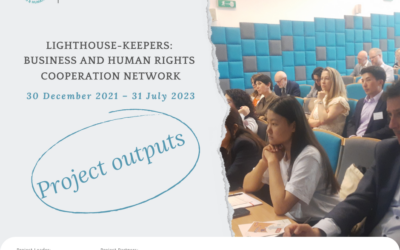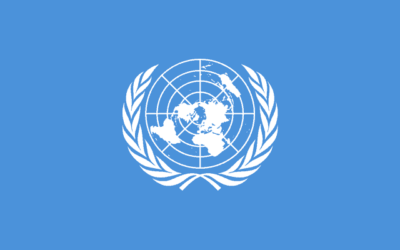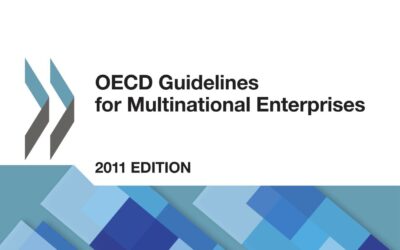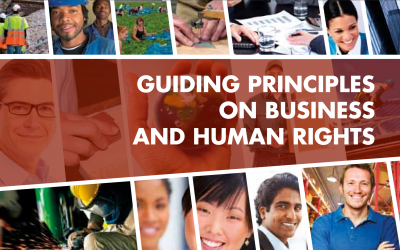UN Guiding Principles on Business and Human Rights
The UN Guiding Principles on Business and Human Rights outline the obligations and responsibilities of States and businesses with regards to human rights. The UNGPs provide guidance on how to prevent, address, and remedy human rights impacts related to business operations. The UNGPs are not binding law and do not create new legal obligations; however, they are based on existing human rights law and principles.
The UNGPs were unanimously endorsed by the United Nations Human Rights Council in 2011. Council members at the time included Kyrgyzstan, Hungary, Poland, Moldova, Russia, Slovakia, and Ukraine.
The UN Guiding Principles feature three pillars:
- The State duty to protect human rights
- The corporate responsibility to respect human rights
- Access to remedy for victims of business-related abuses
For more information, see the Business & Human Rights Resource Centre’s portal on the UN Guiding Principles.
OECD Guidelines
The OECD Guidelines for Multinational Enterprises, which are binding on all OECD member states, reaffirm the State duty to protect human rights, including from third parties such as businesses. According to the OECD Guidelines, businesses should: respect human rights, including by addressing human rights impacts with which they are involved; avoid causing or contributing to adverse human rights impacts; seek ways to prevent or mitigate impacts linked to the enterprise through a business relationship; have a policy commitment to respect human rights; carry out human rights due diligence; and provide for or cooperate in remediation of adverse human rights impacts. The current version of the OECD Guidelines draws strongly from the UNGPs, and the two complement each other.
The OECD Guidelines are actively monitored and supported by National Contact Points (NCPs), which according to the OECD are “agencies established by adhering governments to promote and implement the Guidelines. NCPs assist enterprises and their stakeholders to take appropriate measures to further the implementation of the Guidelines. They also provide a mediation and conciliation platform for resolving practical issues that may arise.” NCPs can receive complaints about violations of the OECD Guidelines. Importantly, NCPs are mandatory for OECD member states, not voluntary.
Actual implementation and case management vary drastically between States, and as of yet there is no review mechanism that can attribute wrongful conduct to a member state if its NCP does not meet standards. Additionally, the complaint process is “complicated and uncertain,” and relatively few cases have been resolved. NCPs do not have guidelines for cooperating with one another or deciding jurisdiction when a case crosses national boundaries.
See the Danish Institute for Human Rights’ Global NAPs page on National Contact Points for more information.
Paragraph one of this section adapted from the Danish Institute for Human Rights’ Human Rights Impact Assessment Toolbox.
International Human Rights Law
Both the UNGPs and the OECD Guidelines are rooted in international human rights law, including:
- The International Labour Organization Conventions
- The International Covenant on Civil and Political Rights
- The International Covenant on Economic, Social and Cultural Rights
- The Convention on the Elimination of All Forms of Discrimination against Women
- The Convention on the Rights of the Child
- The Convention on the Rights of Persons with Disabilities
- The International Convention on the Elimination of all Forms of Racial Discrimination
- The Indigenous and Tribal Peoples Convention
- The International Convention on the Protection of the Rights of All Migrant Workers and Members of Their Families
- The Abolition of Forced Labour Convention
Various treaty bodies oversee implementation of these treaties. Depending on their mandate and optional Protocols, treaty bodies are able to receive complaints, conduct country visits, issue reports, and launch confidential inquiries.
You can learn more about which treaties each State has ratified on the UN Office of the High Commissioner for Human Rights website.
See our legal frameworks page for more information.









